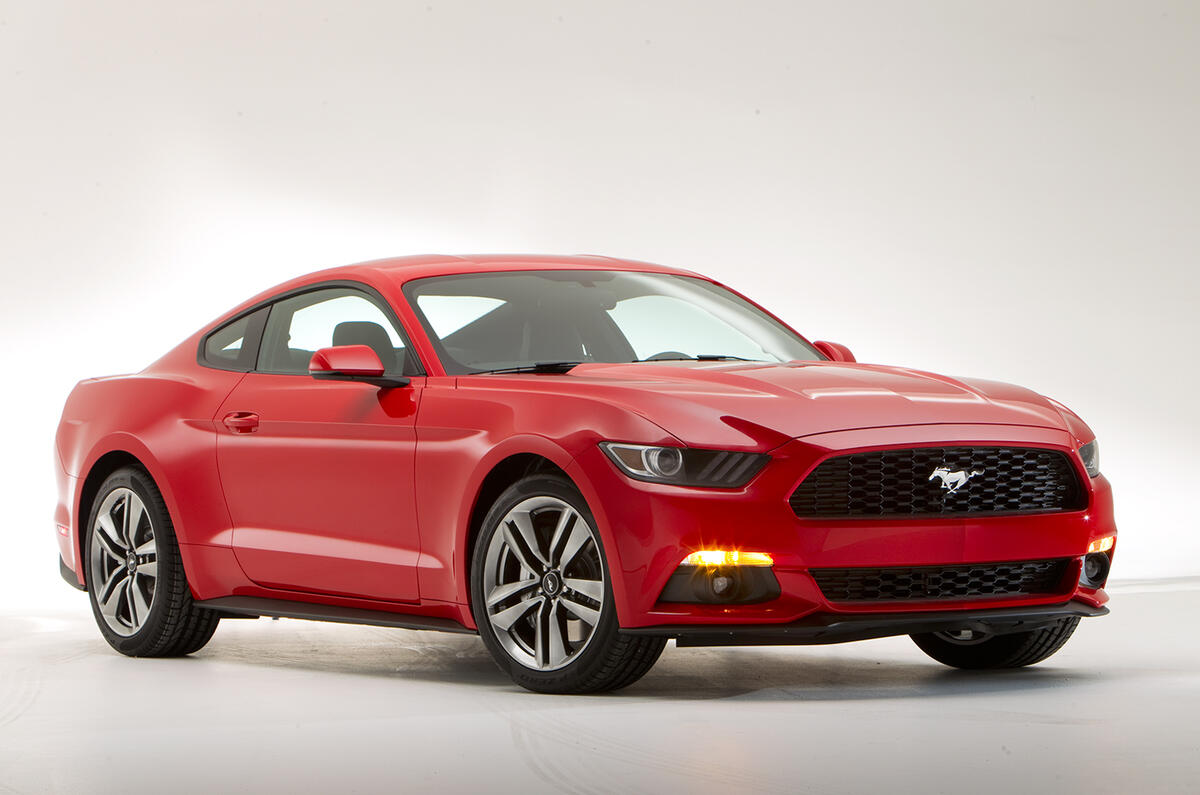In the end, they got the new Ford Mustang launch spot-on.
Ford always knew they had something the car lover would travel many a mile to see, so they simply invited everyone they could think of - hacks, dealers, workers and stalwarts from Mustang clubs, and corralled all 2500 of us in a vast Barcelona exhibition hall, to see the new machine with the all-new design and the independent rear suspension.
However, business talk came first. European big boss Stephen Odell opened up with bullish talk about being on track for profits during 2015, revealing that Ford in Europe had already launched ten models or big changes in the past year.
Then executive chairman Bill Ford stepped out, looking far more relaxed than I've ever seen him, to summarise the challenges the car industry faces: it put roughly a billion cars on the road in its first century, he revealed; the second billion is estimated to arrive by 2033, with all the pollution and congestion challenges that will bring.
Soon, 75 per cent of the world's population will live in cities. Connected cars - much more sophisticated than today's level of connection - will provide a big part of the answer, Ford reckoned. To show how communication matters, the company is planning to spend a third of its marketing budget on digital communications in future.
Then the summarising bombshell: the chairman predicted that Ford's achievements would have an even bigger impact on the key issues of modern transport in the second century than it has done in the first - which contained all the achievements of Old Henry. It was a helluva thing to say.
Odell reappeared to reveal that last year's forecast of 15 major vehicle revisions in five years has now been officially upgraded to 25. Then the metal (or in some case the plastic and plaster) began to roll, in pictures and three dimensions. He talked Transit (soon to be a four-model range), ST (two models now, another next year), and Vignale, intended to give the premium marques some reverse aggro. In the stirring pictures shown, it looked as if it might.
Finally came the Ka concept (world sales of such cars would reach 6.2 million by 2017).
World marketing boss Jim Farley chimed in with optimistic SUV talk (20 per cent of Kuga buyers come from premium marques) and the whole class, which had continually expanded around the world through the recession, was (for Ford) expected to triple its rate of growth between now and 2017 - helped by the new Ford Fiesta-based, India-built baby, EcoSport and the Range Rover-sized Edge concept, bound for Europe soon.
At last it was Mustang time. Despite its back-story, Odell reckoned this was a car that captured the spirit of the age. Two versions - coupé and convertible - drove onto turntables on the stage, one containing Bill Ford, himself the owner of "more than ten" Mustangs, several of them "number ones". The coupé looked the better, stretched out and sleek. I could feel my concerns about its flanks and DLO receding as it revolved. This was a truly handsome car.
Not only that, it had an independent rear end and an EcoBoost engine I'd already established, via technical expert Joe Backaj, was setting new standards for response and stirring sounds.
Bill Ford stepped out and stood there, honestly enjoying being on stage as he has rarely seemed to do in the past. "Well," he said. "Whaddya think?" The answer was in the applause.




Join the debate
Add your comment
Bargain Bucket..........?!
@parsley, I hope it ain't
vital statistics
Self-Driving EV's